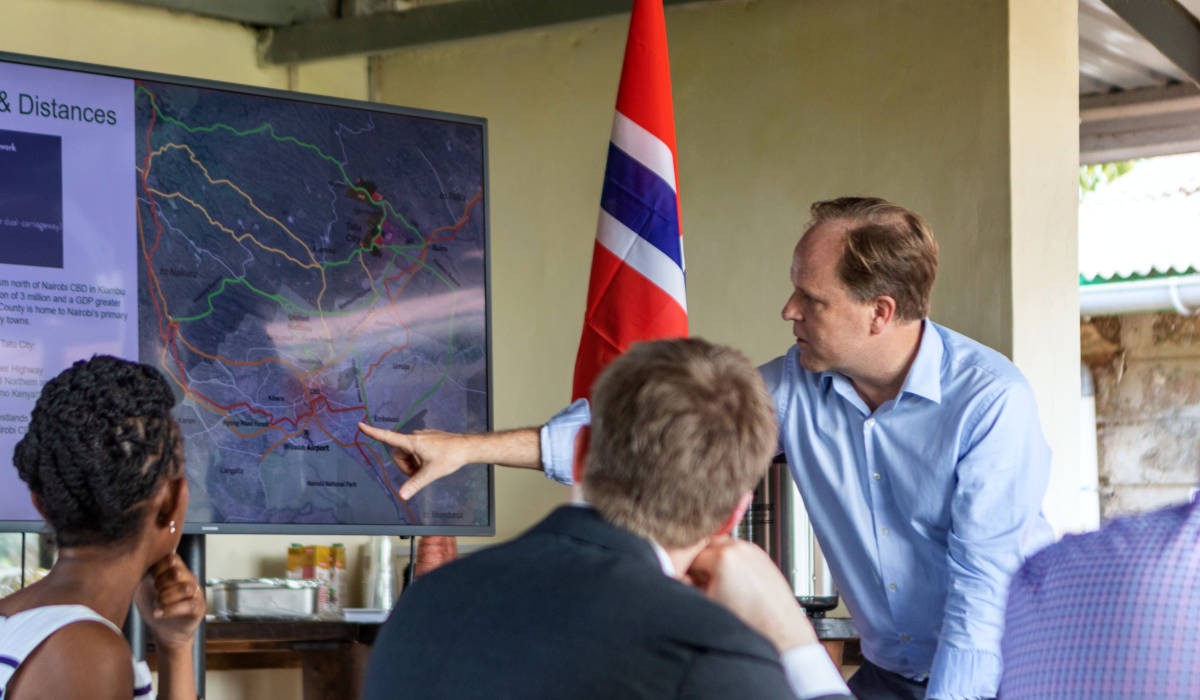The African Union’s peace and security architecture has significantly developed over the past two decades, but Africa still faces persistent and resurgent armed conflict and war. The Nordic countries – Denmark, Finland, Iceland, Norway, and Sweden – have established a robust partnership with Africa, supporting the African Peace and Security Architecture (APSA) through initiatives with African governments, the AU, regional economic communities and mechanisms, civil society, and research institutions.
The Norwegian Institute of International Affairs (NUPI) and the Nordic Africa Institute (NAI) have produced a report that highlights African-Nordic cooperation in peace and security over the last decade (2012-2021). The report was launched on 17 October 2023 at the annual meeting of African and Nordic foreign ministers that was hosted this year by Algeria.
The report features contributions by African and mostly Nordic or Nordic-based researchers and practitioners from universities, policy research institutions, and non-governmental organisations (NGOs). The authors present case studies of each of the five Nordic countries and reflect on five cross-cutting areas that have characterised African-Nordic cooperation in peace and security. The Nordic case studies are organised according to a common framework that focuses on five key priority areas: mediation, conflict prevention and support for peace processes; women, peace and security; human rights, democracy and the rule of law; peace operations and stabilisation; and climate, peace and security. Cross-cutting thematic perspectives address African peace support capacity; women, peace and security; youth, peace and security; peacekeeping and violent extremism; and the AU Partnership and the AU Peace Fund.
Between 2012 and 2021, Nordic countries pledged USD 4.96 billion in development cooperation funding to Africa’s peace and security.
Tweet
The report found that all the Nordic countries work across the conflict spectrum and use a wide array of tools for partnering with African actors, including knowledge generation, training, capacity building, deployment of personnel and technical experts. Between 2012 and 2021, Nordic countries pledged USD 4.96 billion in development cooperation funding to Africa’s peace and security.
The report highlights strategies adopted by the Nordic countries. Denmark has invested heavily in democracy and regional stabilisation, with Kenya and Mali as priority countries, and it established its own Peace and Stabilisation Fund to facilitate a flexible, whole-of-government approach at the intersection between security and development. Finland has actively worked with the AU, European Union (EU), United Nations (UN)), and its African and Nordic partners to support mediation and reinforce inclusivity and sustainability. Finland’s Africa Strategy emphasises equal partnership over aid dependency, and its AU Mediation Support project is considered a flagship effort. Iceland strongly focuses on combating climate change and strengthening climate resilience in its bilateral cooperation. It also places top priority to gender equality and the women, peace and security (WPS) agenda. It has developed a unique model, the Barbershop Toolbox, for mobilising men in the struggle for gender equality. With over 30 years of peace diplomacy experience, Norway is enhancing the African-Nordic partnership’s capacity to prevent, manage, and resolve conflicts in Africa and has supported the Training for Peace (TfP) programme for over twenty years. Sweden has shifted its international development cooperation to Africa’s fragile regions while focusing on APSA, capacity building, and the WPS agenda. This has boosted civilian peacebuilding, mediation, conflict prevention, human rights, and democracy.
Nordic states have diverse approaches that seem traceable to their size, national capacity, and experience. However, their support to African actors covers the spectrum of conflict prevention, peacemaking, peacekeeping and peacebuilding. The cooperation includes technical support, training, research cooperation, joint programming, and civilian and military secondments to African institutions. Above all, there is a significant amount of comparative, accumulated action that is complementary.
Both sides have multiple strategic partnership frameworks, but for the African-Nordic partnership to be sustained, its comparative advantage needs to be clear to all partners.
Tweet
While all the Nordic countries have been actively engaged in peace diplomacy, support for peace operations and countering violent extremism in Africa, a top area of support has been democratic practice. The key regions for African-Nordic cooperation are the Horn of Africa and the Sahel. Nordic countries have also supported local ownership, promoted African agency, and collaborated with African and Nordic non-governmental and civil society actors. To further strengthen the relationship, in pursuit of peace and security in Africa, the report offers three recommendations:
- Strategic partnerships: The African-Nordic relationship has historically been framed in terms of development and humanitarian assistance provided by Nordic countries to their African partners. However, the motivations for support in peace and security are geo-political, contributing to maintaining international peace and security and developing strategic partnerships in the context of a changing global order. As African capacity and agency grow, the relationship must be transformed from a donor-recipient relationship into a strategic partnership guided by mutually beneficial interests.
- The African-Nordic niche: The priorities for most countries have been peace diplomacy, democracy, human rights, and women peace and security. The theme of climate, peace, and security is also vital for African-Nordic cooperation. Both sides have multiple strategic partnership frameworks, but for the African-Nordic partnership to be sustained, its comparative advantage needs to be clear to all partners.
- The AU Peace Fund: African institutions like the African Union have developed significant capabilities in peace and security over the past two decades. However, Africa’s need for more financial resources is a primary challenge. The AU is revitalising the AU Peace Fund, focusing on flexibility and strengthening African agency through investment in African institutions rather than direct interventions.
Cedric de Coning is a senior advisor at ACCORD and a research professor at the Norwegian Institute of International Affairs (NUPI). Angela Muvumba Sellström is a senior researcher at the Nordic-Africa Institute (NAI). The report is available here.



